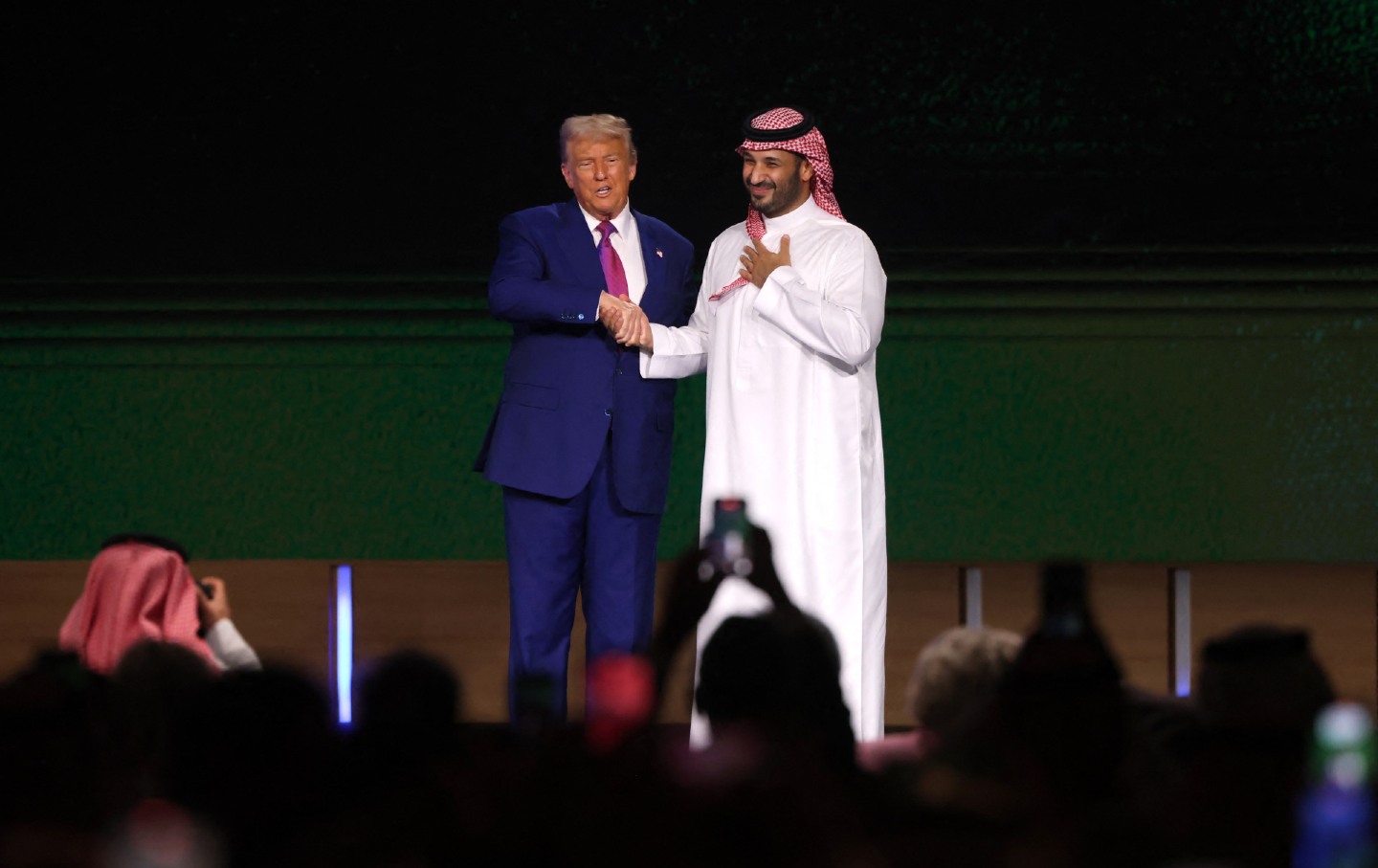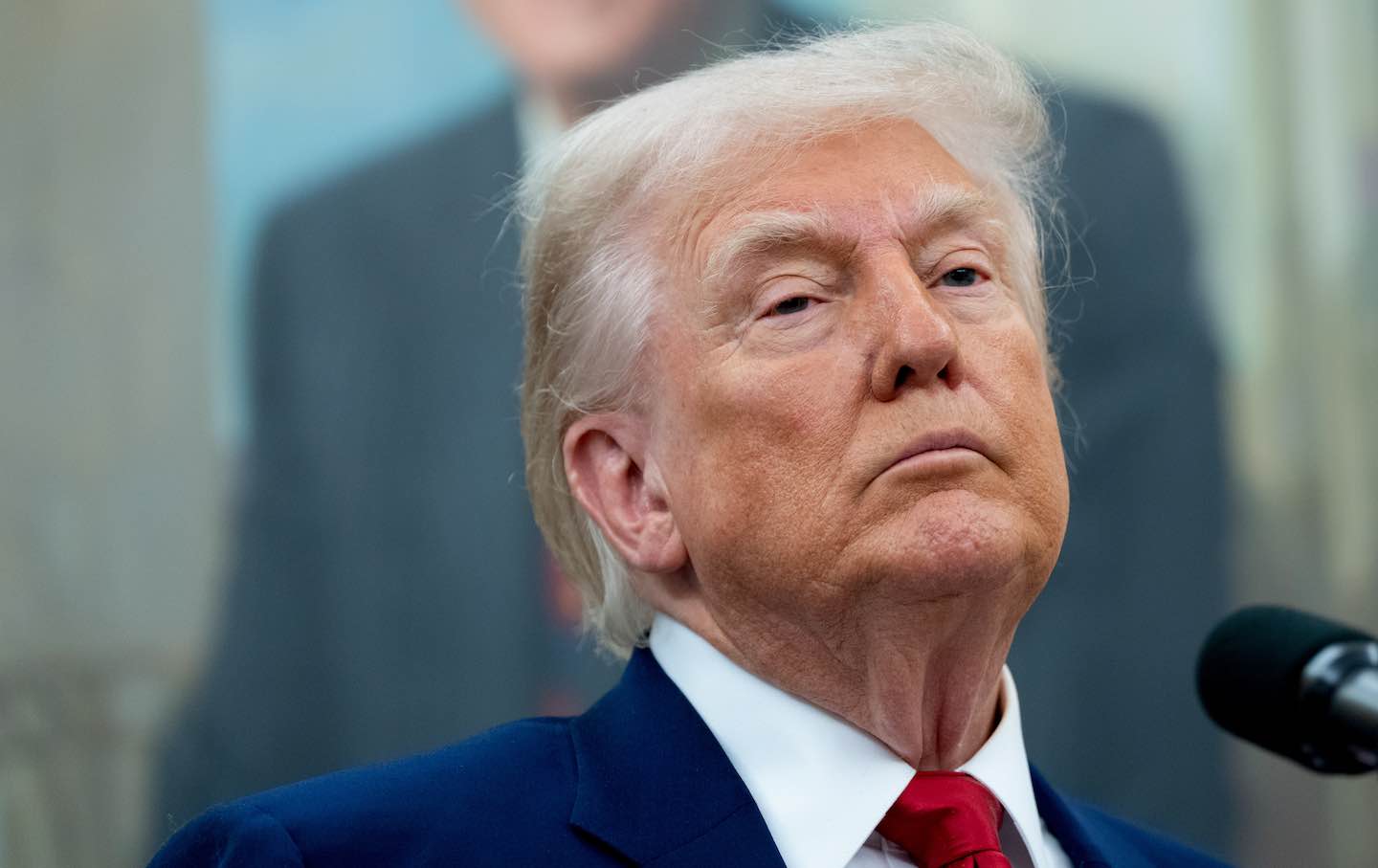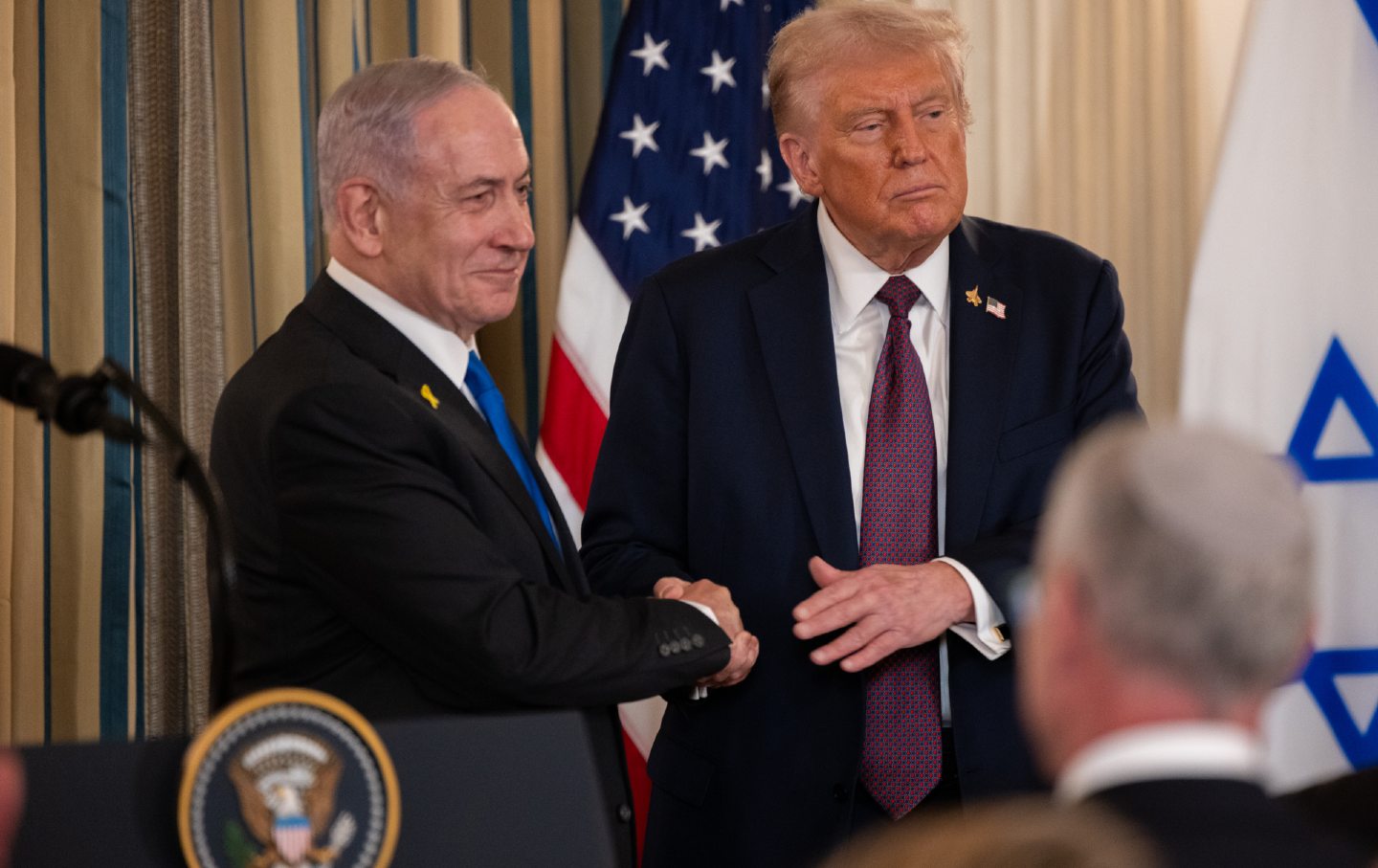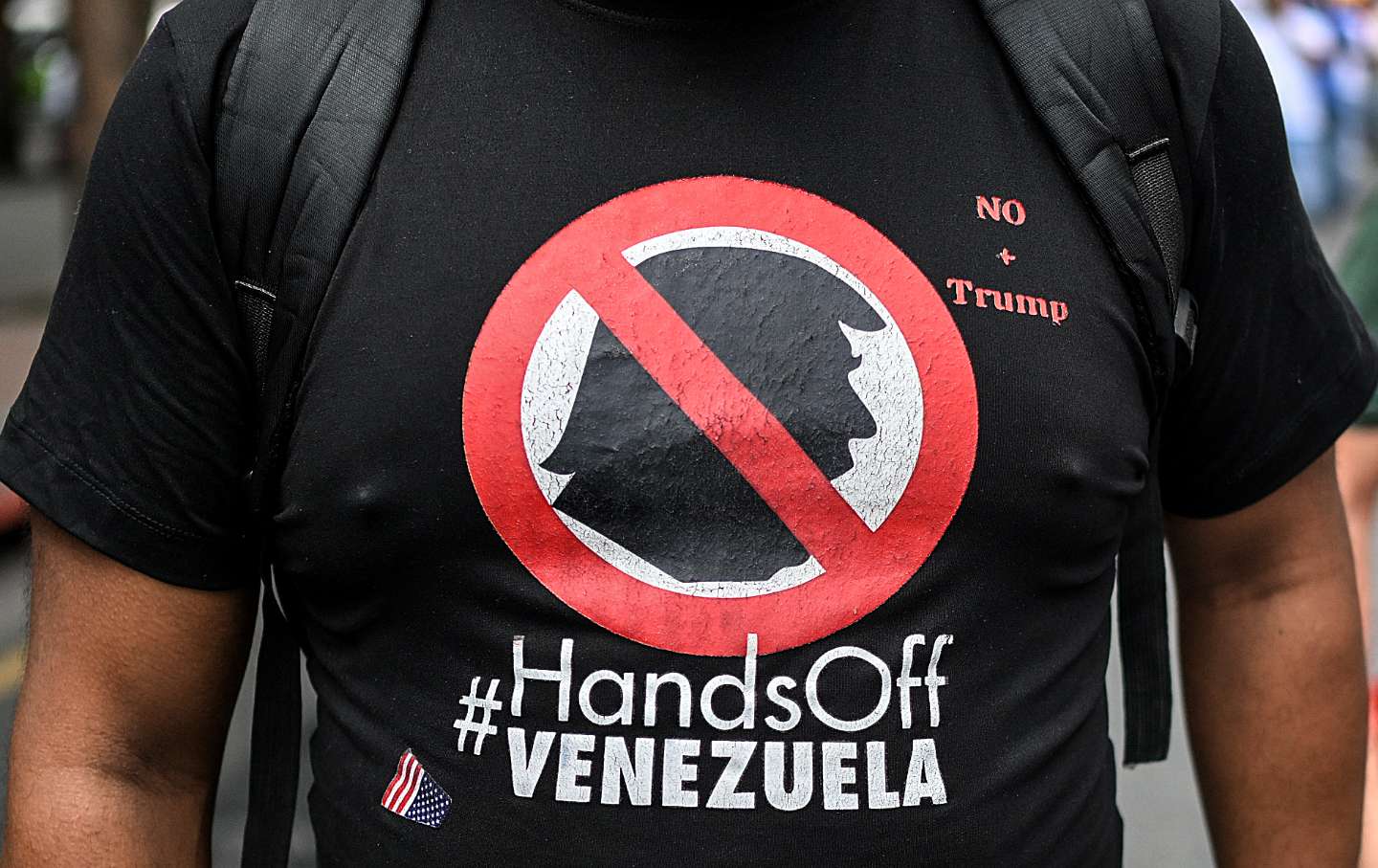For the People in the Back: Anti-Zionism Is Not Antisemitism
Nikki Haley, as usual, is wrong.
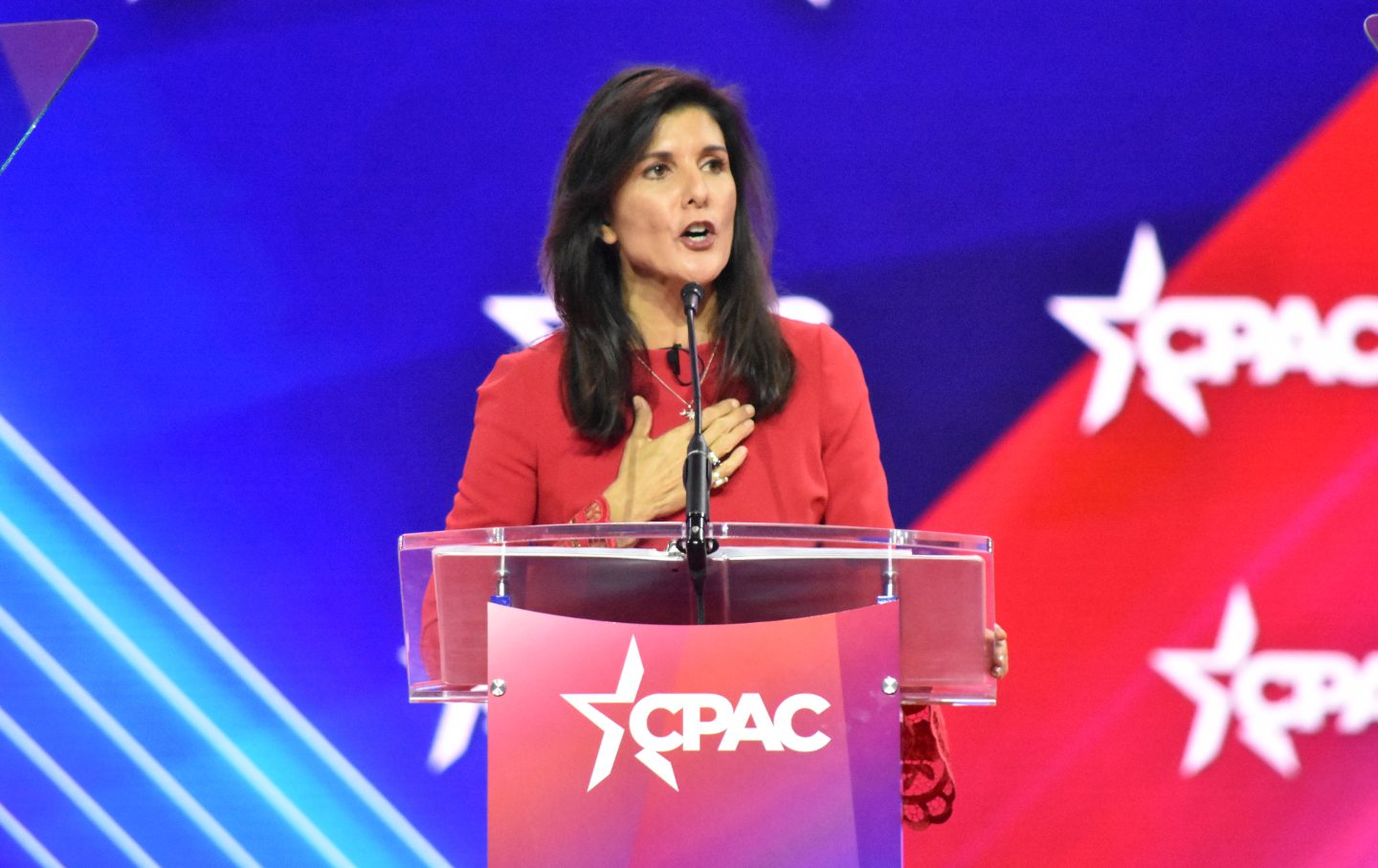
Nikki Haley, who has announced her candidacy for the 2024 Republican presidential nomination, speaking a CPAC on March 3, 2023, in National Harbor, Md.
(AP)Nikki Haley spent four years as a hack for Donald Trump, the most outspoken purveyor of anti-Jewish animus to sit in the Oval Office in recent memory. He was, and is, an antisemite, and Nikki Haley, as UN ambassador, happily carried his water. This is the first and easiest reason to never take anything seriously that Haley has to say about fighting antisemitism.
Yet her recent statement on the topic, taken as common sense in so many circles, demands refutation. Haley states that “Anti-Zionism is antisemitism” and as president she will “change the federal definition of antisemitism” accordingly. This would mean using the government to penalize institutions receiving federal funds unless they follow her mandate to punish critics of Zionism as inherently antisemitic.
Haley says that, “As president, I will change the official federal definition of antisemitism to include denying Israel’s right to exist, and I will pull schools’ tax exemption status if they do not combat antisemitism in all of its forms—in accordance with federal law.” The Orwell is strong in Haley.
Her zeal, however, doesn’t change the fact that these two words—anti-Zionism and antisemitism—actually mean quite different things, and no amount of demagoguery will change that. Judaism is a beautiful religion and culture, of which I am proudly a part, that has been around for thousands of years. Zionism is a 125-year-old political philosophy that has solidified into the idea that Jews need their own ethno-state. The nation of Israel has been around for only 75 years. I have members in my family well older than the state of Israel. It is, as Jimmy Carter has bravely argued in his last years, an apartheid state built on the dispossession of Palestinian land. While this factual history is something that Haley thinks we should be legally forbidden to discuss in the United States, it is a subject of constant debate in the Israeli press: How do you justify a Jewish state if it is built, as Carter said, on “an apartheid” basis?
This conflation of antisemitism with anti-Zionism isn’t about protecting Jews. It is a way of isolating, shaming, and even ruining individuals who oppose the war agenda of the Israeli state. It is a way also to chill the actions of budding activists who are against racism, against apartheid, and against a logic that has brought us to the brink of a Palestinian genocide.
Similarly, to say that antisemitism is anti-Zionism is also a way of communicating the idea that Jews are by definition Zionists. This is dangerous and antisemitic, branding Jewish people as supporters of Israel’s war on Gaza no matter our personal politics. Its assertion also pours gasoline on the fires of antisemitism by creating a savagely unfair guilt by association.
Noxiously, Haley is also winking at the evangelicals whose votes she desperately needs in order to climb above single digits in the GOP primary polls. Many evangelicals are Christian Zionists who believe in Israel because they see its dominance and expansion as a critical prerequisite for the Rapture—one where all us Jews end up in hell. These are her allies. The most notorious antisemites are not in Students for Justice in Palestine, where many Jews have found a political home, but in the Republican base. She must hope we forget that Trumpism, not Palestinians, gave us the Tree of Life massacre in Pittsburgh, or that she went out of her way before the bodies were cold to defend Trump, saying he should not be blamed for the synagogue killings.
None of this is to say that amid the horrors taking place, and with emotions ratcheted up to the breaking point, we haven’t seen any antisemitic signs or slogans in these massive, sprawling global demonstrations against the war on Gaza. Anti-Semitism has no place in a movement for a free Palestine. Demonstration organizers have to remain vigilant in squashing it whenever it rears its head. That is also all the more reason for political clarity.
As Jews, we have an obligation to make clear in our own communities that anti-Zionism is not antisemitism—and that the calls for a cease-fire shouldn’t be feared but embraced. We are already doing this at demonstrations around the world, and it marks a profound political shift. An entire generation of young Jews, to paraphrase Peter Beinert a decade ago, are feeling forced to choose between their progressive principles and support for Israel’s total war—and they are choosing their principles. Through organizations like Jewish Voice for Peace and If Not Now, Jewish youth are looking at Israel’s human rights violations and saying clearly, “Not in our name.”
That’s what truly upsets Haley and Netanyau—not the spread of antisemitism, but people’s refusal to be pawns in their game.

